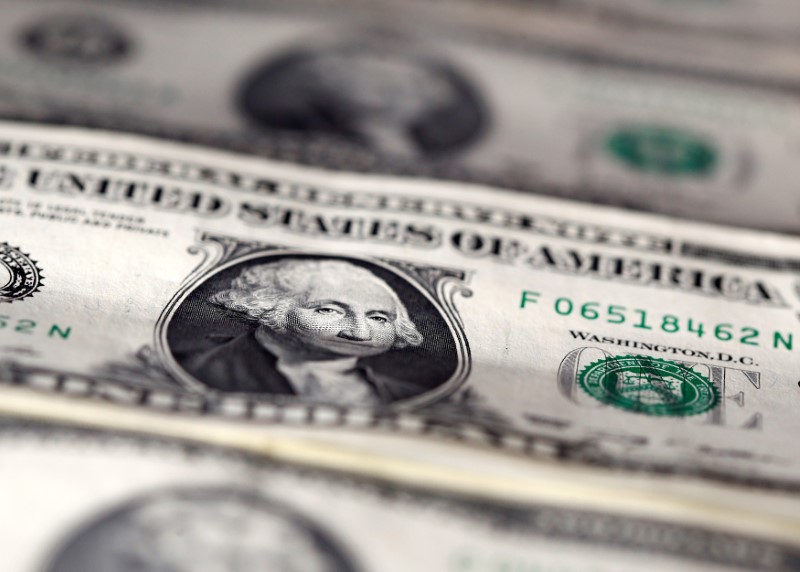By Jamie McGeever
LONDON (Reuters) - The dollar is now the best barometer of global investor risk appetite and financial market leverage, making its current surge potentially destabilizing for the global financial system, a senior BIS official said on Tuesday.
Hyun Song Shin, head of research at the Basel-based Bank for International Settlements, said in a speech that "when the dollar is strong, risk appetite is weak".
"The dollar as a barometer of leverage and risk-taking capacity has implications for both financial stability and the real economy," he said at the London School of Economics
"Given the dollar's role as barometer of global appetite for leverage, there may be no winners from a stronger dollar."
Shin said the dollar had supplanted the VIX index as the variable most associated with the appetite for leverage.
The VIX volatility index measures implied volatility in U.S. stock markets. The dollar has supplanted it as the gauge to watch in large part thanks to the breakdown since the financial crisis in what is known as "covered interest parity".
Covered interest parity theory holds that interest rates implied by FX trading should be consistent with market interest rates, so that there are no interest rate arbitrage opportunities between the two.
But an anomaly between the two has emerged since 2008, and has deepened as the dollar has risen steadily over the past two years, particularly in the dollar/yen market.
With the dollar, U.S. bond yields and expected path of U.S. interest rates all moving sharply higher since last week's U.S. presidential election, the threat to global financial stability is rising too.
The BIS acts as a forum for major central banks.
The dollar on Monday hit its highest level of the year against the euro
Since the 2007-2009 global financial crisis, a stronger dollar has become more closely associated with increasing deviations in covered interest parity, Shin's research shows, and less so with the VIX.
Traditionally, when the VIX is low, leverage is high as banks feel emboldened to borrow and lend more. When the VIX rises, leverage tumbles.
Banks' leverage is at a 25-year low around 18 times, having peaked in 2007 at around 50, and volatility has slumped from crisis peaks thanks to trillions of dollars of central bank stimulus. This would suggest banks are in more robust shape.
But the sector has struggled with years of low - and even negative - interest rates, flattening yield curves and tighter regulation limiting their ability to expand their balance sheets.
The VIX/leverage relationship has broken down, while banks and market participants in Europe and Japan - where interest rates and yields are negative - have hoovered up the higher-yielding U.S. counterpart for investment or hedging purposes.
Non-U.S. dollar borrowing around the world and exposure to dollar-denominated assets has risen, meaning a growing base of investors, banks and financial market participants is exposed to an appreciation in the currency.

Counterintuitively, European banks are potentially the most exposed, because they lend more dollars to borrowers in Asia than U.S. banks do, Shin said.